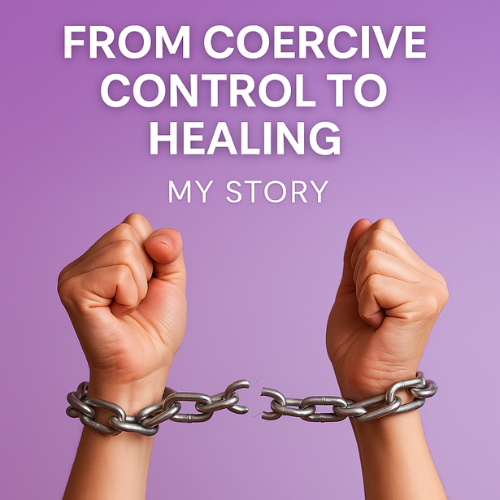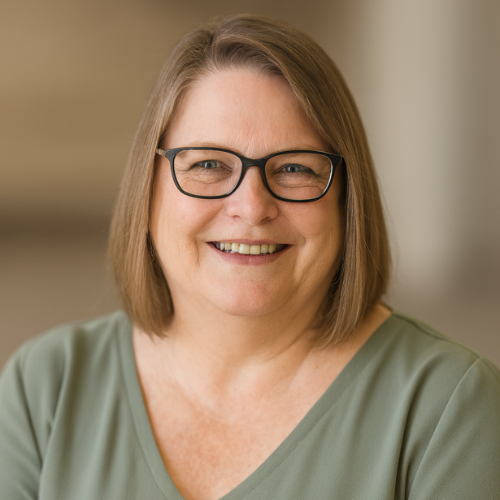⚠️ Content Warning:
This blog discusses coercive control, domestic abuse, and the long-term impacts of trauma. Some readers may find the content distressing or triggering. If you feel overwhelmed, please take a break while reading and reach out for support if needed.
Coercive control
is a form of abuse that often hides in plain sight. It isn’t always about bruises or broken bones – it’s about power, domination, and stripping away a person’s identity piece by piece. For years, I lived under the weight of coercive control, enduring patterns of manipulation, isolation, and fear that made me question my worth and even my sanity.
Today, I am slowly stepping into healing. But to get here, I had to walk through the shadows of control, silence, and shame. This is my story – not to dwell in the past, but to shed light for others who may be walking a similar path.
What Is Coercive Control?
Before sharing my personal journey, I want to pause and explain what coercive control is. Many people still don’t fully understand it. Unlike physical violence, coercive control is often invisible. It is a calculated campaign of intimidation and manipulation designed to dominate another person.
It can include:
- Monitoring your every move
- Restricting your friendships and family contact
- Criticizing and belittling you until you doubt yourself
- Using gaslighting to distort reality
- Sexual coercion and entitlement
- Making you feel responsible for their happiness and anger
Coercive control traps victims in a cycle of fear and compliance. The aim is simple: to break your independence until you feel you cannot survive without them.
I didn’t recognize it at first. Like so many survivors, I thought I was just “keeping the peace.” I thought love meant sacrifice. But slowly, the walls closed in.
The Beginning: Subtle Red Flags
As the years went on, the control became more overt. My days were dictated by his moods. If he was angry, I walked on eggshells. If he was pleased, I clung to those rare moments of calm, hoping they meant change was coming.
Isolation followed. Friends faded away – not because they didn’t care, but because I couldn’t risk the wrath that came with outside influence. Family connections became strained. I was alone, tethered to him in ways that felt impossible to escape.
Even intimacy was weaponized. When I didn’t comply with his desires, guilt and pressure followed. My body didn’t feel like my own anymore – it was another area of control.
And perhaps worst of all was the gaslighting. Every time I tried to speak up, I was told I was “crazy,” “overreacting,” or “too sensitive.” He twisted words, denied reality, and made me question my own memory. Slowly, I stopped trusting myself.
The Emotional Toll
Years of coercive control left scars that aren’t visible to the eye. Anxiety became my constant companion. I doubted every decision, replaying conversations to see if I had done something wrong.
I lost sight of who I was. My voice, once strong and vibrant, became quiet and uncertain. I was conditioned to believe that my worth depended entirely on how well I could keep him happy.
Fear seeped into everything. Fear of making him angry. Fear of losing security. Fear of being alone. Fear of never being enough.
And yet, like so many survivors, I stayed. Because leaving wasn’t just about walking out the door – it meant untangling years of control, manipulation, and dependency. It meant facing a storm I didn’t feel strong enough to weather.
Why I Stayed So Long
This is one of the questions survivors are asked most often: Why did you stay?
The answer is complex. I stayed because I believed the promises that things would change. I stayed because I thought I could “fix” it if I just tried harder. I stayed because I feared what would happen if I left.
But most of all, I stayed because I had been conditioned to. Coercive control is designed to make leaving feel impossible. It eats away at your self-esteem until you believe you cannot survive without your abuser.
And for years, I believed that lie.
The Breaking Point
Eventually, though, something shifted. I can’t point to one single moment – it was a series of small awakenings.
I began to notice the toll it was taking on my health. My body was in constant tension, my sleep restless, my spirit weary. I began to see glimpses of myself in the mirror and wonder, “Where did I go?”
The final push came when I realized that staying wasn’t just costing me happiness – it was costing me my very self. That realization sparked a flicker of strength.
Leaving wasn’t easy. It wasn’t neat. It wasn’t quick. But it was necessary.
The Long Road to Healing
Walking away from coercive control doesn’t mean the abuse ends. The echoes linger. I carry the voices of blame and doubt in my head.
Healing is not a straight line. Some days I feel strong, others I feel pulled back into old fears. But slowly, I am learning to trust myself again.
Here are some of the ways I’ve been rebuilding:
- Therapy: Speaking my truth to someone who understands has been life-changing. It has helped me see patterns, release guilt, and begin to reclaim my identity.
- Community: Finding support among other survivors reminded me I am not alone. There is power in shared experience.
- Boundaries: For the first time in years, I am learning to say no without apology. Boundaries are not selfish – they are survival.
- Self-Compassion: Instead of berating myself for “staying too long,” I now recognize the courage it took to endure and the strength it takes to heal.
Lessons Learned
Through this painful journey, I’ve learned truths I carry with me:
→ Abuse is never your fault.
→ Love should never hurt, silence, or diminish you.
→ Healing takes time, and that’s okay.
→ Your voice matters – even when it shakes.
→ There is life after coercive control.
Where I Am Today
I won’t pretend everything is perfect now. Healing is a process, and I am still walking that path. Some days the memories surface, raw and painful. Other days, I feel lighter, freer, more myself than I have in years.
But the difference now is hope. I see a future that is mine to create. I am learning to embrace joy without guilt, to trust myself without second-guessing, and to live without the constant weight of fear.
Most importantly, I am learning that healing doesn’t mean forgetting. It means acknowledging what happened, honouring the strength it took to survive, and choosing, every day, to move forward.
A Message to Other Survivors
If you are living under coercive control, know this: you are not alone. The silence you’ve been forced into does not define you. There are people and resources ready to help you.
Leaving is terrifying, and healing takes time, but freedom is possible. You are not weak for enduring. You are strong for surviving.
Resources for Support
If you or someone you know is experiencing abuse or coercive control, please reach out for help:
Australia – 1800 RESPECT (1800 737 732) – 24/7 support service
Lifeline Australia – 13 11 14 (for crisis support)
UK – National Domestic Abuse Helpline – 0808 2000 247
USA – National Domestic Violence Hotline – 1-800-799-SAFE (7233)
If you are in immediate danger, call emergency services (000 in Australia, 911 in the USA, 999 in the UK).
The Light Ahead
For years, I endured abuse that chipped away at my spirit. I lived under coercive control, believing lies about my worth and my strength.
But today, I can say this: I am slowly healing. Piece by piece, I am reclaiming the woman I was always meant to be. My scars remain, but they are no longer chains – they are reminders of resilience.
The journey isn’t over, but I am walking it with courage, hope, and love. And that, for me, is the beginning of freedom.
#HealingThroughLove #CoerciveControl #SurvivorStory #DomesticViolenceAwareness #BreakTheSilence #TraumaRecovery #Empowerment #HealingJourney






